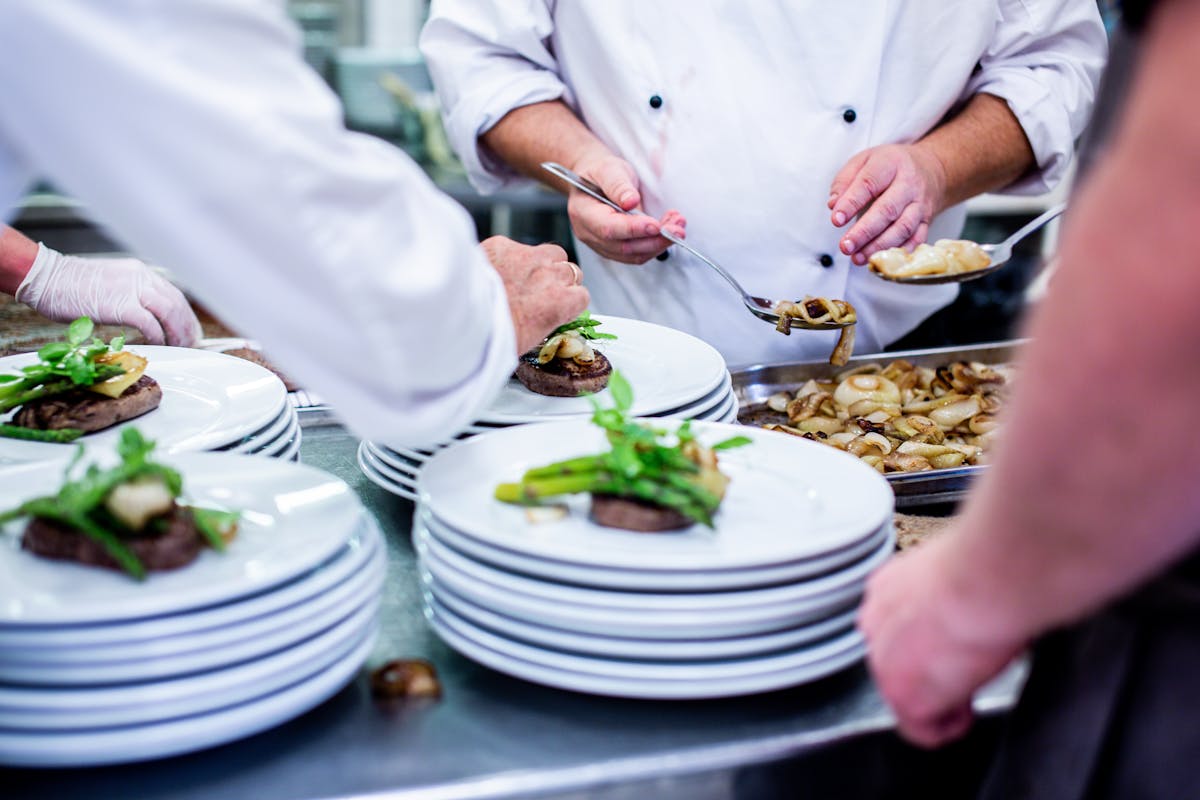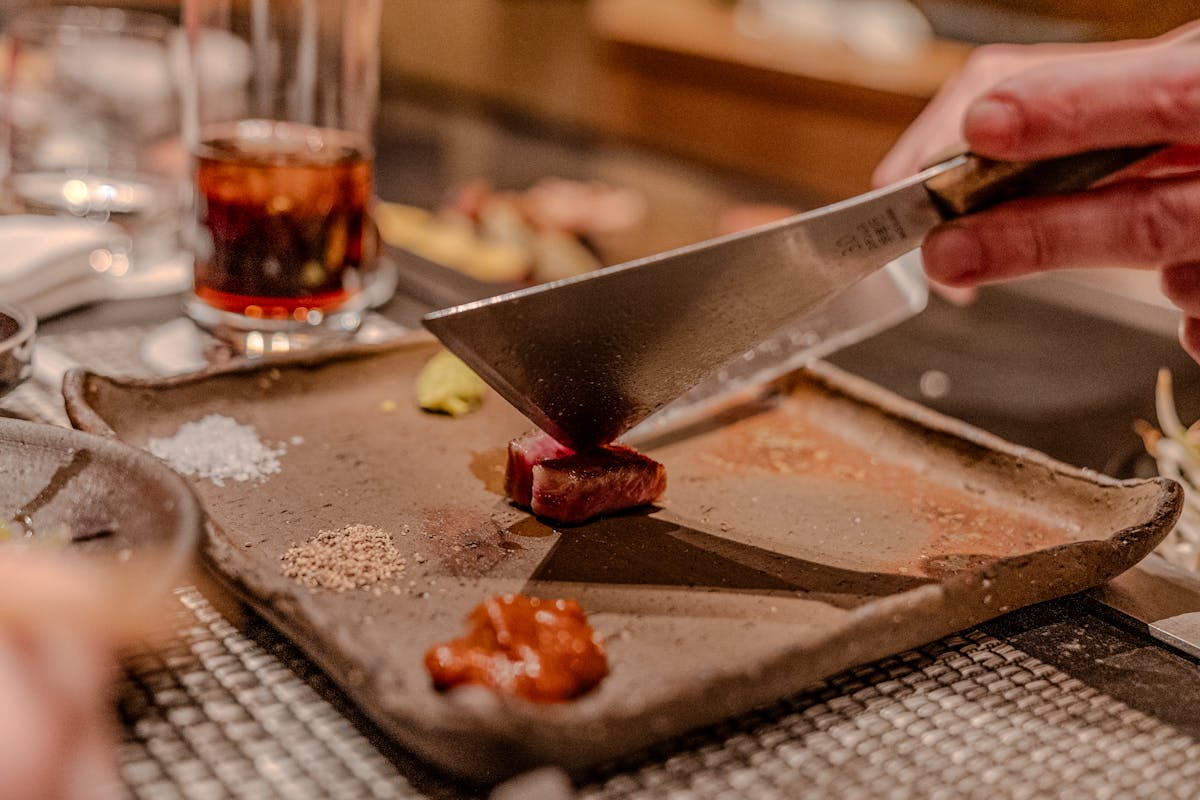Becoming a private chef without prior professional experience might sound ambitious, but it's completely attainable if you start with a genuine love for cooking. At its core, the journey begins in your kitchen.
Whether you're the one who always volunteers to host dinner parties or you're simply the person who finds joy in trying new recipes at home, that passion is your greatest starting point. Cooking often, experimenting with different ingredients, and refining your technique will help you build a strong foundation.
Every meal you prepare becomes a learning experience, each mistake a lesson, and every compliment a validation of your growth.
Learning Through Real-World Practice
Without formal training, gaining hands-on experience becomes your top priority. Start offering your cooking services in informal settings. Cook for family gatherings, friend celebrations, or local events. These occasions not only allow you to practice but also to observe how people respond to your food in a social setting.
You'll start understanding how to plan a multi-course meal, how to deal with timing, how to serve food that looks as good as it tastes, and how to adapt quickly when things don’t go as planned. These practical insights are the building blocks of your future career.
Creating a Culinary Portfolio
While you may not have a resume filled with restaurant jobs, you can build a portfolio that shows off your abilities. Begin by documenting the meals you make. Take high-quality photos of your plated dishes and present them in a way that reflects your aesthetic.
Write out example menus tailored to different dietary needs or themed events, and collect testimonials from the people who’ve enjoyed your food. This portfolio is your visual resume. It gives potential clients a glimpse into your skills, your style, and your attention to detail.
Understanding Dietary Needs and Trends
A huge part of being a successful private chef today is the ability to cook for a range of dietary requirements and lifestyles. Many clients are looking for chefs who can prepare plant-based, gluten-free, low-carb, or allergen-free meals. Some want to follow specific wellness trends like keto, paleo, or Mediterranean diets.
Understanding how to create flavorful dishes that cater to these preferences will set you apart. This means doing research, trying recipes in each category, and learning how to substitute ingredients while maintaining texture and taste. Being able to confidently cook for any type of dietary restriction shows professionalism and care.
Developing Business Savvy
Private chefs aren’t just cooks—they are entrepreneurs. You’ll need to develop the mindset of a business owner. That starts with understanding the logistics behind meal preparation, scheduling, communication, and pricing. Think carefully about your costs, including groceries, time spent shopping and prepping, cooking time, transportation, and clean-up.
Your pricing should reflect the full service you’re providing, not just the food on the plate. In addition, you should familiarize yourself with local laws around food preparation and service. You may need to acquire food handler certifications or other permits depending on your location. Setting clear terms with clients around cancellation policies, deposits, and services offered will help you operate more smoothly and professionally.
Building a Personal Brand
Establishing yourself a private chef experience is much easier when you develop a clear brand. This means deciding how you want to be perceived by clients. Are you the wellness-focused chef specializing in clean eating? Are you a comfort food connoisseur who turns every meal into a nostalgic experience?
Whatever your style, consistency in how you present yourself—through your menus, photos, and customer service—will help people remember and trust you. Sharing your journey and your dishes on social media is one of the most effective ways to get noticed. Use platforms like Instagram and Facebook to post photos, share behind-the-scenes stories, and connect with people in your local food community.
Offering Exceptional Service
One of the reasons clients hire private chefs is for a personalized, stress-free dining experience. That means your work isn’t done when the food hits the table. Creating a seamless and enjoyable evening from start to finish involves much more.
Show up early to set up, bring all the necessary ingredients and tools, and make sure the kitchen is spotless when you leave. Interact with guests if it’s part of the experience, and be attentive to their needs without being overbearing. The goal is to make clients feel like they’re at a five-star restaurant—only more comfortable, more relaxed, and more personal.
Leveraging Word-of-Mouth and Referrals
As you begin to serve more clients, word-of-mouth becomes a powerful marketing tool. Encourage clients to refer you to others, and follow up after each event with a thank-you note or message. Building trust and offering consistently great experiences will naturally lead to repeat bookings and glowing recommendations. Each dinner you serve is a chance to impress, and every happy guest is a potential future client.
Never Stop Learning
The culinary world is always evolving, and the best chefs are lifelong learners. Read cookbooks, follow trends, take online courses, and stay curious. If you ever get the chance to stage with an experienced chef or work a few shifts in a professional kitchen, take it. Even small insights can make a big difference. The more you grow, the more value you can offer your clients.
Conclusion
You don’t need a traditional resume or a culinary degree to become a private chef. What you need is passion, discipline, creativity, and the willingness to learn. Hiring a private chef is also not cheap either.
By cooking often, treating every meal as a chance to improve, and focusing on creating memorable experiences, you can turn your love of food into a successful private chef career. Gradito exists for people exactly like you—ambitious, creative, and ready to bring joy to others through cooking.







